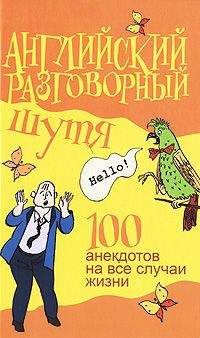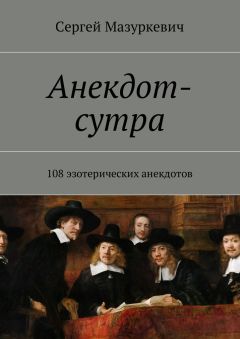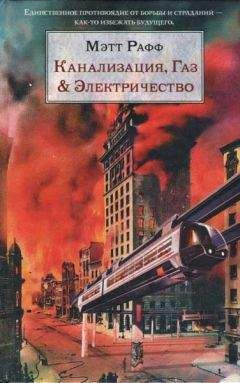2. Fill in the blanks with the words from the text:
1. They both worked _______ time.
2. Housework, he _______, was woman's work.
3. Mary found the children _______.
4. A load of _______ was in the dryer.
5. She was _______ .
6. It _______ that Charley had read a magazine article.
7. Working wives could be more _______ inclined if they weren't so tired.
8. They had to do all the housework into holding down a full-time job.
9. Charley helped the _______ with their homework.
3. Say if the statement is true or false:
1. He always did everything around the house and certainly all the housework.
2. One evening Mary arrived home from work to find the children bathed.
3. She immediately wanted to know what was going on.
4. The next day, she couldn't tell her friends in the office about it.
5. Well, it was a great breakfast.
6. Charley cleaned up and helped the kids with their homework.
4. Match the words and expressions in the left column to those in the right one:
5. Translate from Russian into English:
1. Он никогда не делал ничего по дому.
2. Мэри приехала домой с работы и обнаружила, что стиральная машина загружена.
3. На плите был обед, а стол был прекрасно сервирован и украшен цветами.
4. Она немедленно захотела узнать, что происходит.
5. В статье говорилось, что работающие жены могли бы быть более романтически настроенными.
6. Кроме того, у нее была работа на полный рабочий день.
7. Она не могла дождаться, когда расскажет своим приятельницам в офисе.
8. А что было потом?
Revise English Grammar
В предложении The article said that working wives could be more romantically inclined if they weren't so tired from having to do all the housework… сослагательное наклонение основано на использовании глагола could в первой части предложения.
Кроме глагола could, в подобного рода конструкциях может использоваться глагол might. При этом изменяется значение конструкции.
Проверьте свои навыки использования данных глаголов; при необходимости обратитесь к грамматическому комментарию (раздел 31).
6. Translate from Russian into English:
1. Если бы он любил свою жену, он делал бы работу по дому.
2. Если бы она не уставала так на работе, она могла бы быть романтически настроена каждый день.
3. Если бы она приехала с работы раньше, у него не было бы времени сделать всю работу по дому.
4. Если бы у них были бабушка или дедушка, они могли бы присматривать за детьми.
5. Если бы он не прочитал этот журнал, он вряд ли приготовил бы обед.
6. Если бы он не устал, это бы сработало.
7.Turn the sentences into Active:
1. All the housework is done by Mary.
2. The children were bathed by the husband.
3. The table has been laid by Charley.
4. Mary was astonished by what she saw.
5. The laundry is being folded by Mary herself.
8.Render the joke.
Section 29
We fight so much
Two Yuppettes were shopping. When they started to discuss their home lives, one said, «Seems like all Alfred and I do anymore is fight. I've been so upset, I've lost 20 pounds.»
«Why don't you just leave him then?» asked her friend.
«Oh! I'd rather not,» the first replied. «Not yet. I'd like to lose at least another fifteen pounds first.»
Study the words and expressions given below:
yuppette сленг yuppie(a young urban professional) молодой горожанин-профессионал (ette – уменьшительный суффикс)
upset грустный, опечаленный
pound фунт
seems like all we do anymore is fight похоже, что все, что мы теперь делаем, это ругаемся
I'd rather not я бы не стала
Exercises to the text
1. Answer the questions to the text:
1. What is a yuppie?
2. What were the yuppies doing?
3. Who's Alfred?
4. What are Alfred and his girl doing all the time?
5. What's the advantage of this way of life?
2.Fill in the blanks with the words from the text:
1. Two Yuppettes were _______.
2. They started to discuss their _______ lives.
3. Seems _______ all we do anymore is fight.
4. I've _______ 20 pounds.
5. Why don't you _______ leave him?
6. I'd _______ not.
3. Match the two parts of the sentences:
4. Match the words and expressions in the left column to those in the right one:
Translate from Russian into English:
1. Это меня так расстраивает.
2. Почему ты его не оставишь?
3. Пока нет.
4. Я бы хотела сперва сбросить еще пятнадцать фунтов.
Revise English Grammar
В предложении I'd rather not… (Iwould rather…) используется конструкция, с помощью которой в сослагательном наклонении выражается предпочтение. Близкой по значению, но наделенной иными смысловыми нюансами, является конструкция I'd better (I had better).
Проверьте навыки использования данных конструкций. При необходимости обратитесь к грамматическому комментарию (раздел 32).
6. Translate from Russian into English:
1. Я бы предпочел, чтобы ты пошла в магазин.
2. Нам бы не следовало обсуждать наши домашние обстоятельства.
3. Вам бы не следовало ругаться все время.
4. Я бы предпочла потерять 20 фунтов, чем быть толстой (fat).
5. Тебе следовало бы бросить его.
6. Я бы предпочла не отвечать.
7.Render the joke.
Section 30
Why didn't you say anything, mother?
A man used to work night shift. Once he returned home and went straight up to the bedroom. He found his wife with the sheet pulled over her head, fast asleep. Not to be denied, the horny husband crawled under the sheet and proceeded to make love to her.
Afterward, as he hurried downstairs for something to eat, he was startled to find breakfast on the table and his wife pouring coffee.
«How did you get down so fast?» he asked. «We were just making love!»
«Oh my God,» his wife gasped. «That's my mother up there! She came over early and had complained of having a headache. I told her to lie down for a while.»
Rushing upstairs, the wife ran to the bedroom.
«Mother, I can't believe this happened. Why didn't you say anything?»
The mother-in-law huffed, «I haven't spoken to that jerk for fifteen years, and I wasn't about to start now!»
Study the words and expressions given below:
shift зд. рабочая смена
sheet простыня
to pull тянуть
to pull over натягивать (на что-л.)
asleep спящий
to deny отрицать, отвергать
to crawl вползать, пробираться ползком
to proceed приступать
to hurry спешить
to startle испугать, поразить, сильно удивить
to complain of sth жаловаться (на что-л.)
headache головная боль
downstairs внизу; вниз по лестнице; на нижнем этаже
to rush бросаться
upstairs вверху; вверх по лестнице; на верхнем этаже
mother-in-law теща, свекровь
to huff говорить гневно
jerk сленг дурак и бездельник
night shift ночная смена
fast asleep крепко спящий
not to be denied чтобы его не отвергли
for a while в течение некоторого времени
to be about to do sth собираться что-л. делать
Exercises to the text
1. Answer the questions to the text:
1. Where did the man return from?
2. Why did he proceed to make love to the lady without saying a single word?
3. What was he startled at when he got downstairs?
4. Why did the wife gasp?
5. What was wrong with her mother?
6. Why didn't the mother-in-law say a single word while being made love to?
2. Fill in the blanks with the words from the text:
1. The man went _______ to the bedroom.
2. He found his wife _______ asleep.
3. The horny husband _______ under the sheet.
4. He hurried _______ for something to eat.
5. How did you get down so _______?
6. She came over early and had _______ of having a headache.
7. I can't _______ this happened.
3. Say if the statement is true or false:
1. He found his wife with the sheet pulled over her head, fast asleep.
2. The husband crawled under the sheet and proceeded to make coffee to her.
3. He hurried downstairs for something to read, and was startled to find breakfast on the table and his wife pouring coffee.
4. We were just making love!
5. That's my father up there!
6. She came over early and had complained of having a headache.
7. I told her to stand still for a while.
4. Match the words and expressions in the left column to those in the right one:
5. Translate from Russian into English:
1. Мужчина вернулся домой с ночной смены.
2. Он обнаружил свою жену с простыней, натянутой на голову.
3. Чтобы его не отвергли, он заполз под простыню.
4. Он был обеспокоен, найдя завтрак на столе.
5. «О Боже мой, – жена от волнения едва не задохнулась, – там же наверху моя мать!»
6. Я велела ей немного полежать.
7. Жена бросилась наверх.
Revise English Grammar
В предложениях Afterward he hurried downstairs for something to eat… и Why didn't you say anything? используются производные от местоимений some и any слова something и anything, употребление которых определяется соответствующими нормами.
Проверьте, насколько хорошо вы знаете эти нормы. В случае необходимости обратитесь к грамматическому комментарию (раздел 33).
6. Fill in the blanks with appropriate words following the directions given in brackets:
1. Did the man find (кого-нибудь) _______ in the
bedroom?
2. Yes, he found (кое-кого) _______ there.
3. Did he notice (что-нибудь) _______ strange about the woman in bed?
4. No, there was (что-то) _______ on her head so he couldn't see the face.
5. His wife was (где-то) _______ downstairs.
6. She was preparing (что-то) _______ for her husband to eat.
7. Did his wife tell (что-нибудь) _______ to her mother?
8. After he learnt what had happened, he could eat (ничего) _______.
Revise English Grammar
В предложении A man used to work night shift… глагол to use используется в значении «имел обыкновение» в конструкции, всегда стоящей в прошедшем времени.




